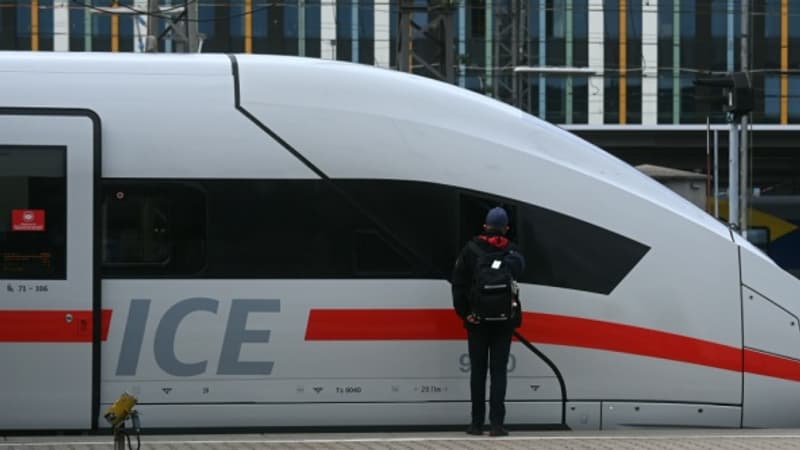To illustrate the consequences of the aging rail network, SNCF often cites the German example as a worst-case scenario. And the facts prove him right. Last October the punctuality of our neighbors’ long-distance trains worsened even more.
According to the newspaper Süddeutsche Zeitung, a month ago only 51.5% of these trains arrived on time, a historically low level. Worse still, on October 23 and 24, punctuality did not exceed 37% and 95.1% of rail trips suffered at least one interruption. The railway company confirmed these figures.
These difficulties are explained, in addition to the poor state of the railway infrastructure, the associated works and bad weather (in particular, Storm Joshua). “Rail congestion is spreading rapidly across the network and is negatively affecting punctuality across the country,” a DB spokesperson said.
His predecessor, Richard Lutz, fired, had promised punctuality of 65 to 70% by 2025, or even 75 to 80% by 2027, on long-distance lines, a goal still set last July and considered by experts to be absolutely unrealistic. In reality, since April the situation has continued to deteriorate.
Reduce the number of trains to improve punctuality
Now, Federal Transport Minister Patrick Schneider is aiming for punctuality of 70% by 2029, with the aim of increasing it to 80% in the medium term and 90% in the long term. The Minister of Transport did not specify the exact deadlines planned.
While waiting to take advantage of the numerous ongoing infrastructure works, the room for maneuver to improve the situation is limited. One solution would be to reduce the number of trains on the network. However, this is only a last resort solution.
“The situation on the railways will not change by changing the direction, but only by improving the railway policy in Germany and by sufficiently financing the railways,” said Karl-Peter Naumann, honorary director of Pro-Bahn, the Deutsche Bahn user association. “In fact, all previous Transport Ministers have more or less failed and contributed greatly to the current situation of the railways,” he added.
However, the group hopes to advance more quickly on these projects thanks to billions of euros of public investments guaranteed by Friedrich Merz’s government.
Source: BFM TV


